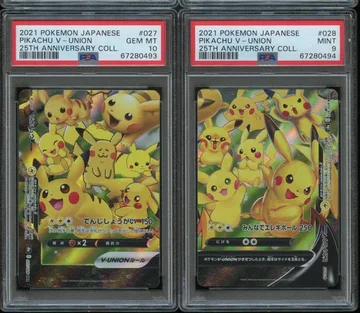Introduction
When it comes to card grading in the world of collectibles, enthusiasts often find themselves embroiled in discussions about the significance of even the slightest variations in grade. In particular, the delta between a PSA 9 and a PSA 10 has garnered much attention and debate. As a passionate card collector and connoisseur, it’s essential to understand the nuances and implications of these grading differentials. In this blog post, we delve into the world of card grading, specifically focusing on the delta between a PSA 9 and a PSA 10. Join us as we uncover the intricacies of card grading in relation to popular keywords like Card Grading, Pokemon, PSA, Fanatics, Topps, Panini, Upper Deck, The Hobby, BGS, and SGC
Understanding Card Grading
Card grading serves as a critical aspect of the collectibles market, providing a standardized evaluation of a card’s condition, authenticity, and overall quality. For enthusiasts of various trading card games like Pokemon, brands such as Topps, Panini, and Upper Deck are synonymous with high-quality card production. The grading process involves meticulous examination by professional graders, who assess attributes like corners, edges, centering, surface, and print quality. Among the most reputable grading services, Professional Sports Authenticator (PSA), Beckett Grading Services (BGS), and Sports Card Guaranty (SGC) dominate the industry.
Exploring the Delta: PSA 9 vs. PSA 10
When discussing the delta between a PSA 9 and a PSA 10, we’re essentially examining the subtle variations in condition and grading between these two levels. A PSA 10 represents a card in virtually perfect condition, exhibiting minimal flaws that are only detectable under close scrutiny. On the other hand, a PSA 9 signifies an outstanding card with minor imperfections, such as slight corner wear or surface scratches that are visible upon inspection but do not significantly detract from its overall appeal.
Several factors contribute to the perceived difference in value between a PSA 9 and a PSA 10. Rarity and demand play a crucial role, as collectors often prioritize obtaining the highest graded cards to complete their collections or investment portfolios. Moreover, the overall condition of the card, including factors like centering and print quality, significantly affects its desirability and, consequently, its market value.
Industry Trends and the Evolving Landscape
As the card collecting hobby experiences a surge in popularity, recent industry developments have further fueled discussions around card grading. The recent partnership between Fanatics and the major sports leagues, such as the NFL and MLB, has brought about significant changes in the trading card market. With Fanatics planning to launch its own grading service, it remains to be seen how this new player will impact the delta between grades and the market dynamics overall.
While PSA dominates the card grading landscape, it’s important to recognize the offerings of other reputable grading services such as Beckett Grading Services (BGS) and Sports Card Guaranty (SGC). BGS is renowned for its subgrades, which provide a more detailed assessment of various attributes, including corners, edges, centering, and surface. SGC, on the other hand, is recognized for its vintage card expertise and a unique aesthetic with its distinctive black label. Collectors should consider these alternatives when evaluating the delta between different grades.
Conclusion
In the ever-evolving world of card collecting and grading, the delta between a PSA 9 and a PSA 10 continues to be a subject of much discussion and speculation. While some collectors prioritize owning only the highest graded cards, others find value and affordability in slightly lower grades. Ultimately, individual preferences, rarity, and market demand dictate the perceived difference in value. Whether you are a dedicated collector, investor, or hobbyist, understanding the nuances of card grading is essential to making informed decisions about your collection. Stay tuned for more updates on the Card Grading, Pokemon, PSA, Fanatics, Topps, Panini, Upper Deck, The Hobby, BGS, and SGC landscape as the industry continues to evolve.


